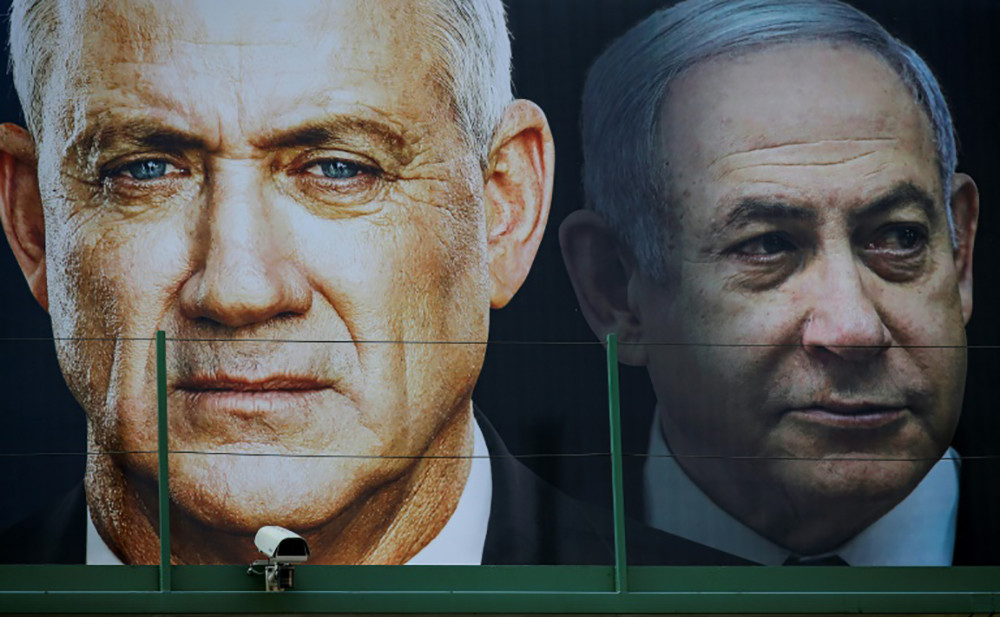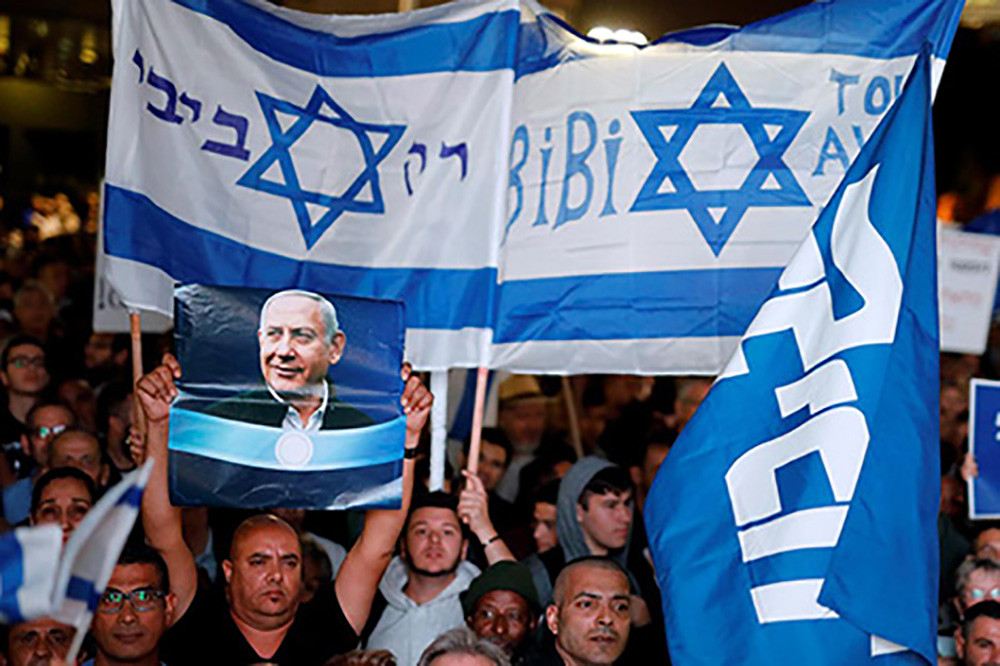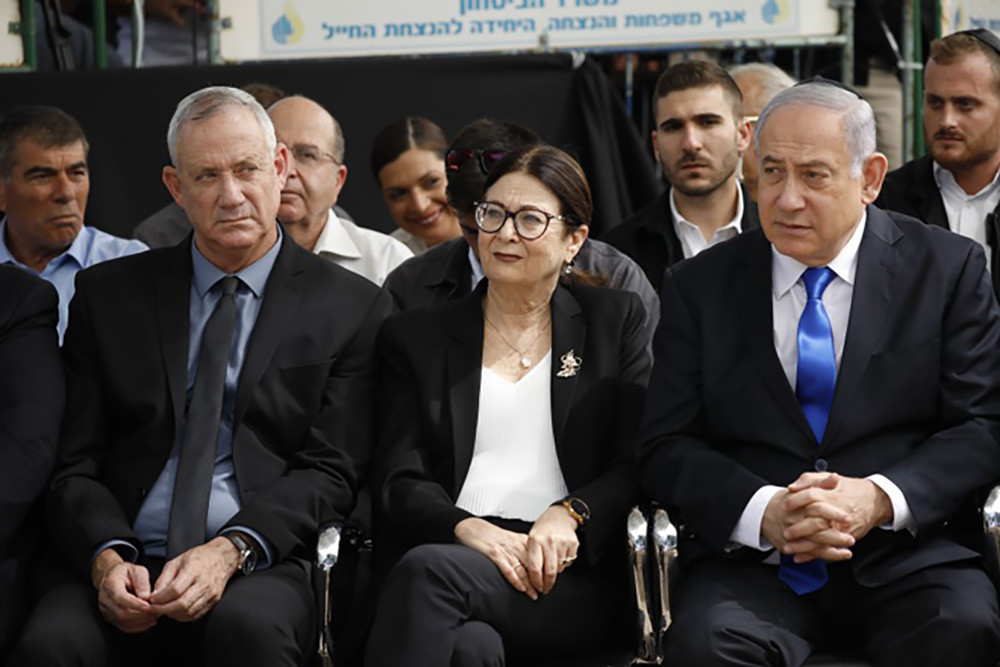Power-sharing agreement in Israeli politics
(Baonghean) - Earlier this week, Israeli Prime Minister Benjamin Netanyahu and his "arch-rival" former general Benny Gantz successfully drafted an agreement to form a coalition government. This is a development that promises to end months of paralysis in Israeli politics, and at the same time "turn the wheel" dramatically, helping the country avoid the scenario of the fourth consecutive election in more than a year.
Government "national emergency"
That is what Mr. Netanyahu and Mr. Gantz - leader of the Blue and White party - call the government formed under the power-sharing agreement they signed on April 20, the result of many weeks of tense negotiations. It is known that after the votes on March 2 left both politicians without the necessary majority in parliament, Netanyahu and Gantz agreed to find a way to form a coalition government in the context of the rapidly developing Covid-19 crisis, which has the potential to spiral out of control.
The talks have stalled several times, likely due to Mr Netanyahu's personal legal problems, raising concerns that they could push the country into new elections.
 |
| The April 20 Netanyahu-Gantz agreement broke Israel's long-standing political deadlock. Photo: AFP |
Two figures who “call the wind and call the rain” on the political stage in Israel affirmed that they expect that the “national emergency” government will help steer the country through the pandemic caused by Covid-19. Meanwhile, according to the AP news agency, although Mr. Netanyahu has been unsuccessful in three consecutive elections held within the past year, the coalition agreement just reached still returns the prime minister's seat to the long-serving leader, challenging critics who predicted that he would lose power, and restoring the reputation of a “political wizard” to the veteran politician. That means Netanyahu will almost certainly continue to stay in office throughout the upcoming trial against him on corruption charges.
The deal also sets out a three-year period, with Netanyahu serving as prime minister for the first 18 months, followed by Gantz taking over for the remaining half. In addition, Gantz's party will take control of many senior government ministries, including the defense ministry.
Netanyahu, meanwhile, is seen as getting a significant boost from the deal, as he battles to stay in power and fends off corruption charges. His party will have influence over judicial appointments. The deal also requires the two sides to agree on key appointments, including the attorney general and state prosecutor, giving Netanyahu veto power over officials who could threaten his legal fate.
“I pledge before the State of Israel a national emergency government that will work to save the lives and livelihoods of Israeli citizens.”
 |
| Israeli people's support for Mr. Netanyahu. |
Concession and trust
According to Western media analysis, Israel’s new deal requires major concessions from its two political rivals. The reason for this is that, during three difficult election campaigns over the past year, Gantz and the Blue and White party vowed never to serve in a government under Netanyahu as long as he faced a series of corruption allegations. After 11 years in office, Netanyahu agreed to step aside and let Gantz take over, if the newly formed coalition manages to survive long enough.
“We prevented a fourth vote. We will defend democracy. We will fight Corona and we will take care of every Israeli.”
However, if you look closely, you will see that while the coalition government was initially formed to respond to the Covid-19 pandemic, which has now caused more than 170 deaths in Israel and significantly affected the economy, the negotiations leading to this "handshake" actually mainly revolved around Mr. Netanyahu's corruption trial, scheduled to begin next month.
Key points in the deal include a demand by the incumbent prime minister for a greater say in the appointment of judges, which could be crucial if his case eventually reaches the Supreme Court.
 |
| Mr. Gantz (left) and Mr. Netanyahu (right) attend a ceremony in Jerusalem on September 19, 2019. Photo: AP |
Political analyst Avraham Diskin, who helped draft part of the coalition agreement, said guarantees from both sides were crucial. Netanyahu wanted assurances that he would not be forced to resign after Gantz took over as prime minister, because under Israeli law, all officials, except the prime minister, must resign if convicted.
As for Blue and White, they want assurances that Netanyahu will not overthrow the government before Gantz becomes prime minister. “There is a complete lack of trust,” Diskin said. “I pray that the government will survive and not miss its chance by fighting over meaningless things.”
In a joint statement, the parties said they would form an “emergency” government for six months, focused on tackling the coronavirus crisis. In the meantime, they would also work on a “policy outline” for a long-term coalition government. Many speculated that the agreement could pave the way for Netanyahu’s campaign promise to annex large areas of the West Bank after July 1. Palestinian official Saeb Erekat made his stance clear, saying the new government had two options: “either open the door to a meaningful peace process, or further destroy any hope of peace.”
 |
| The coalition government deal was reached as Israel faces its worst health crisis ever. Photo: AFP |
In conclusion, the unanimous power sharing in Israel, viewed from a positive perspective, is to help the country avoid the scenario of going to the polls again and again and falling into a deadlock, as well as an opportunity to temporarily put aside all struggles and join forces to focus on eliminating the Covid-19 pandemic in the midst of an emergency. But if we look further, the lack of trust and assurance from both sides, along with unresolved disagreements in domestic and foreign affairs, it is not entirely pessimistic to predict that this agreement still faces the risk of dying prematurely!

